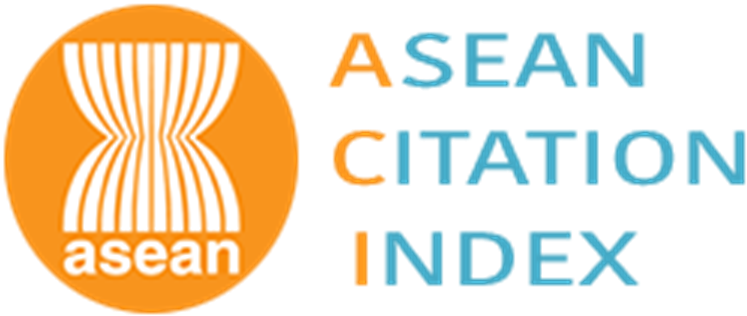การพัฒนารูปแบบศักยภาพของผู้รับผิดชอบด้านการจัดการพลังงานในโรงงานอุตสาหกรรมสิ่งทอภายใต้การควบคุมของกระทรวงพลังงาน
Competency Development for Personnel Responsible for Energy Management in Textile Industry under the Ministry of Energy
Abstract
งานวิจัยครั้งนี้มีวัตถุประสงค์เพื่อ 1) ศึกษาองค์ประกอบที่สำคัญในการพัฒนาศักยภาพของผู้รับผิดชอบด้านการจัดการพลังงานในโรงงานอุตสาหกรรมสิ่งทอภายใต้การควบคุมของกระทรวงพลังงาน 2) พัฒนารูปแบบศักยภาพของผู้รับผิดชอบด้านการจัดการพลังงานในโรงงานอุตสาหกรรมสิ่งทอภายใต้การควบคุมของกระทรวงพลังงาน และ 3) จัดทำคู่มือการพัฒนาศักยภาพของผู้รับผิดชอบด้านการจัดการพลังงานในโรงงานอุตสาหกรรมสิ่งทอภายใต้การควบคุมของกระทรวงพลังงาน เป็นการวิจัยเชิงคุณภาพและเชิงปริมาณ ซึ่งกลุ่มตัวอย่างที่ใช้ในการวิจัย ได้แก่ 1) กลุ่มผู้ให้ข้อมูลเชิงคุณภาพโดยการให้ข้อมูลด้วยการสัมภาษณ์เชิงลึก จำนวน 7 คน และผู้ทรงคุณวุฒิในการประชุมสนทนากลุ่มประชาพิเคราะห์เพื่อประเมินรูปแบบฯ และคู่มือการพัฒนาศักยภาพของผู้รับผิดชอบด้านการจัดการพลังงานในโรงงานอุตสาหกรรมสิ่งทอ จำนวน 13 คน 2) กลุ่มผู้ให้ข้อมูลเชิงปริมาณ ได้แก่ ผู้รับผิดชอบด้านการจัดการพลังงานในโรงงานอุตสาหกรรมสิ่งทอภายใต้การควบคุมของกระทรวงพลังงาน จำนวน 218 คน เครื่องมือที่ใช้ในการวิจัย ได้แก่ แบบสัมภาษณ์เชิงลึกกึ่งโครงสร้าง และแบบสอบถาม สถิติที่ใช้ในการวิเคราะห์ข้อมูล ได้แก่ ความถี่ ร้อยละ ค่าเฉลี่ย ส่วนเบี่ยงเบนมาตรฐาน ค่าสัมประสิทธิ์สหสัมพันธ์ และค่าสถิติวัดระดับความกลมกลืนจากการวิเคราะห์องค์ประกอบเชิงยืนยัน ผลการวิจัย พบว่า รูปแบบศักยภาพของผู้รับผิดชอบด้านการจัดการพลังงานในโรงงานอุตสาหกรรมสิ่งทอภายใต้การควบคุมของกระทรวงพลังงาน ประกอบด้วย 23 องค์ประกอบย่อย ซึ่งครอบคลุม 3 องค์ประกอบหลัก ได้แก่ 1) ด้านความรู้ ประกอบด้วยองค์ประกอบย่อย 9 องค์ประกอบ 2) ด้านทักษะ ประกอบด้วยองค์ประกอบย่อย 8 องค์ประกอบ และ 3) ด้านคุณลักษณะที่พึงประสงค์ ประกอบด้วยองค์ประกอบย่อย 6 องค์ประกอบ และผลการพัฒนาคู่มือการพัฒนาศักยภาพของผู้รับผิดชอบด้านการจัดการพลังงานในโรงงานอุตสาหกรรมสิ่งทอ ประกอบด้วยเนื้อหา 3 ส่วน ได้แก่ 1) ส่วนนำ 2) ส่วนรูปแบบศักยภาพของผู้รับผิดชอบด้านการจัดการพลังงานในโรงงานอุตสาหกรรมสิ่งทอ และ 3) ส่วนแนวทางการพัฒนาศักยภาพของผู้รับผิดชอบด้านการจัดการพลังงานในโรงงานอุตสาหกรรมสิ่งทอภายใต้การควบคุมของกระทรวงพลังงาน โดยผลการประเมินความเหมาะสมของรูปแบบศักยภาพของผู้รับผิดชอบด้านการจัดการพลังงานในโรงงานอุตสาหกรรมสิ่งทอ และคู่มือการพัฒนาศักยภาพของผู้รับผิดชอบด้านการจัดการพลังงานในโรงงานอุตสาหกรรมสิ่งทอ พบว่า ได้รับความเห็นชอบด้วยมติเอกฉันท์ในภาพรวมมีความเหมาะสม สามารถนำไปใช้พัฒนาศักยภาพของผู้รับผิดชอบด้านการจัดการพลังงานในโรงงานอุตสาหกรรมสิ่งทอ และสามารถนำไปประยุกต์ใช้กับโรงงานอุตสาหกรรมประเภทอื่น ๆ ได้
The purposes of this research are to: 1) study the important factors in the competency development for personnel responsible for energy management of textile industry under the Ministry of Energy, 2) develop the competency model for personnel responsible for energy management of textile industry under the Ministry of Energy, and 3) develop a competency manual for personnel responsible for energy management of textile industry under the Ministry of Energy. The research employed both qualitative and quantitative data. The sample groups in this research consisted of: 1) a group of 7 qualitative informants who provided in-depth interviews and a group of 13 experts in focus group discussions for the evaluation of model and the competency manual for personnel responsible for energy management in textile industry. 2) A group of 218 quantitative informants who are personnel responsible for energy management of textile industry under the Ministry of Energy. The research tools consisted of semi-structured in-depth interviews and questionnaires. Statistics used in data analysis consisted of frequency, percentage, average, standard deviation, correlation coefficient, and goodness of fit statistical index from confirmatory factor analysis. The results showed that the competency model for personnel responsible for energy management in textile industry under the Ministry of Energy consisted of 23 sub-factors under 3 major factors, namely, 1) Knowledge, consisting of 9 sub-factors, 2) Skills, consisting of 8 sub-factors, and 3) Attributes, consisting of 6 sub-factors. The established competency development manual consisted of 3 content sections, namely, 1) Introduction, 2) Competency model for personnel responsible for energy management in textile industry, and 3) Competency development approaches for personnel responsible for energy management in textile industry under the Ministry of Energy. The competency model and the competency manual were validated with unanimous approval. It can be concluded that the developed model is suitable for the development of the competency of personnel responsible for energy management in textile industry and for other industries.
Keywords
[1] W. Mungwititkul. (2019, July). Energy Management in Weaving Industry. [Online] (in Thai). Available: http://www.thailandindustry.com/indust_new web/articles_preview.php?cid=10113.
[2] Department of Alternative Energy Development and Efficiency Ministry of Energy, “Manual for the appointment of personnel responsible for energy in designated factories and building,” Ministry of Energy, Bangkok, 2009 (in Thai).
[3] The Federation of Thai Industries and The Energy Conservation Center of Thailand. (2020). The Governance Supporting and Performance Promoting Project Following the Energy Conservation Promotion ACT B.E. 2535 for Designated Factories Group 1. [Online] (in Thai). Available: http://www. iie.or.th/iie2016/images/ preserve/files.pdf.
[4] Department of Alternative Energy Development and Efficiency, (2009, Sep 25). Ministry of Energy’s Notification on Criteria and Procedure for the Management of Energy in Designated Factories and Building B.E. 2552. [Online] (in Thai). Available: https://www.dede. go.th/download/energysaving58/22.pdf
[5] J. Chenaphun, S. Wisutthipat, T. Roopsing, and P. Attawinijtrakan, “The development model of energy manager’s potential in industrial plants,” The Journal of KMUTNB, vol. 28, no. 2, pp. 461–468, 2018 (in Thai).
[6] P. Moonphukdi, “Guidelines for developping competency of inulation workers in insulution process of oil & gas industry: case study of lng module fabrication in AAA construction company,” M.S. thesis, Business Administration for Executives, Graduate School of Commerce, Burapha University, 2017 (in Thai).
[7] T. Amjang, “A Potential development model of environmental management system consultants in the industrial sector,” Ph.D. dissertation, Industrial Business and Human Resource Development, Graduate School, King Mongkut’s University of Technology North Bangkok, 2017 (in Thai).
[8] P. Wattanathum, S. Wisutthipat, T. Roopsing, and P. Attawinijtrakan, “Potential development model for quality control personnel of boiler manufacturer,” The Journal of KMUTNB, vol. 29, no. 4, pp. 711–722, 2019 (in Thai).
[9] K. Somwadee, T. Chankoson, and P. Triwong, “The development of participatory energy conservation promotion in designated chemical industrial factories,” Asian Administration and Management Review, vol. 1, no. 1, pp. 147– 156, 2018 (in Thai).
DOI: 10.14416/j.kmutnb.2022.04.005
ISSN: 2985-2145





